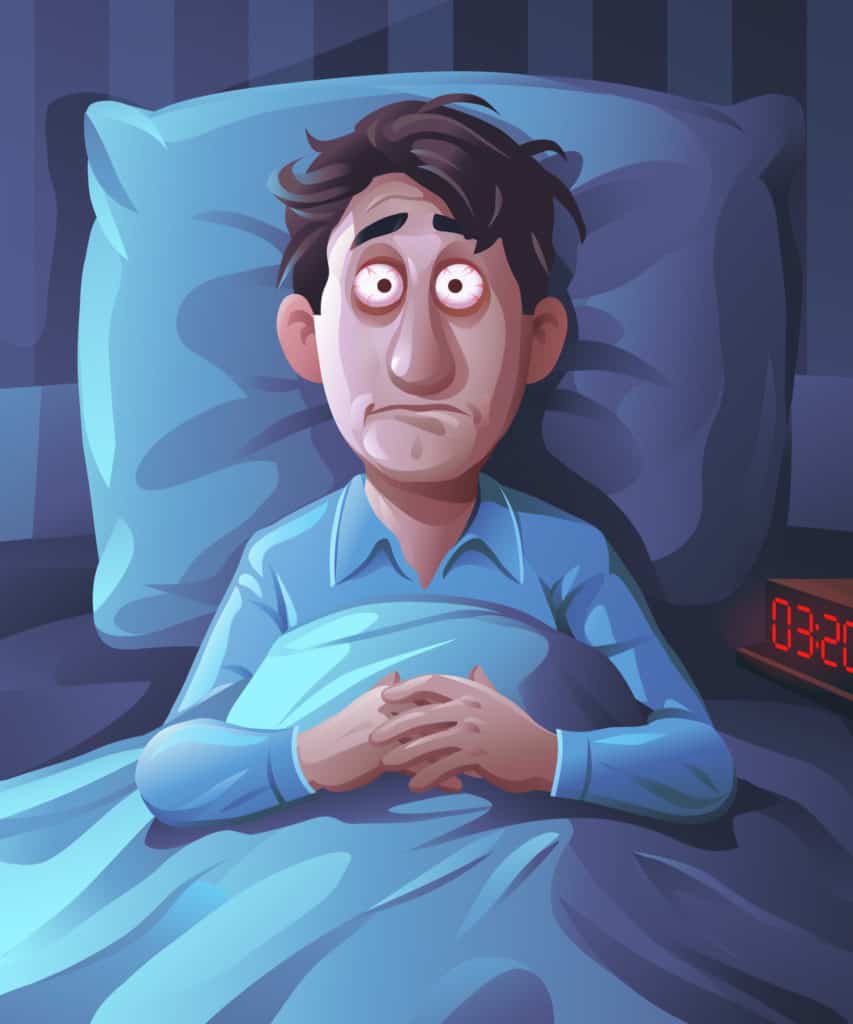
We all know how important sleep is for athletes and rugby players. However, still so many of us do not get enough high quality sleep because of poor sleeping habits.
In this article we will explore all the negative ways lack of sleep can hurt your rugby abilities and give you 5 easy to employ methods that will lift your overall feeling of well being and have you dominating on the rugby field.
How Does Sleep Deprivation Affect Rugby Players?
A lack of sleep places rugby athletes at an increased risk of illness. Studies have shown that athletes who average less than 5 hours of sleep per night are 4.5 times more likely to catch an infection compared to those who get 7 hours.
Do you really want to miss training or have an awful rugby match performance because you caught a cold due to your poor sleeping habits?
If you are a young footy player who is willing to risk catching a cold because of lack of sleep you may think twice about staying up late when you find out about your increased chance of suffering an injury. Recent studies have indicated that athletes who sleep less than 8 hours per night are 1.7 times more likely to be injured than those who regularly get 8 hours or more rest.
If you are a rugby athlete who wants to avoid becoming sick or injured then you better be getting 8 hours of sleep a night.
How can rugby players improve their sleep?
Rugby players can improve their sleep by making their room as dark as possible, going to bed at the same time every night, not using screens 2 hours before, avoiding late afternoon naps and cups of coffee.
1. Dark Room!
Humans are best suited to sleeping when it’s dark and rising when its light. You need to make your room blackout dark. No light should be beaming through your curtains and no electrical devices should be shining in your bedroom. Ideally you should buy blackout curtains and tape around the edges so not even a tiny bit of light can creep through.
2. Keep Same Sleeping Schedule
As humans we need strong routines. Waking up and going to bed at different times messes with your body’s ability to get to sleep and stay asleep. You need to create a set routine and stick to it. This is extremely important if you want to get high quality deep sleep. Ideally if you are a rugby player you want to be in bed before or at 11pm every night and waking up before 8am. Studies have shown these times are ideal for athletic performance.
3. No Electronic Devices 2 Hours Before Bed
The light from your devices particularly your phone and laptop can wreak havoc on your sleep. Also phones, video games and TVs can mess with your central nervous system by spiking adrenaline and cortisol levels which can prevent you from getting a good night sleep. You should not use any electronic device 2 hours before bed.
If you do not know what to do for 2 hours before bed without your phone then consider reading, stretching or playing cards.
4. No Late Afternoon Naps
While naps can be an effective way to boost your sleeping hours and rejuvenate you for the later part of the day if you nap too late in the afternoon they can disturb your nightly sleep. Late afternoon naps can make it difficult for you to fall asleep which can destroy your sleeping schedule. It is best not to nap after 1pm.
5. Avoid Caffeine
Caffeine is a great way to increase your endurance, speed and explosiveness on the rugby field. However, the increased energy you receive from caffeine makes it nearly impossible for you to fall asleep at night. Don’t worry you don’t need to give up your precious coffee, you should just avoid consuming caffeine in the late afternoon or later.
Caffeine is an awesome supplement to improve rugby performance but we’ve all experienced the effects it has when struggling to sleep after an evening kick off! Caffeine obviously boosts alertness and will keep you awake longer. So it’s common sense to minimise caffeine consumption in the afternoon so as to get a restful night’s sleep.
Conclusion
If you want to improve your performance on the rugby field, reduce your risk of injury/illness and overall feel better you need to fix your sleep. Give our 5 easy to implement sleeping tips a whirl and you will be surprised at the sharp uptick in your rugby prowess.
